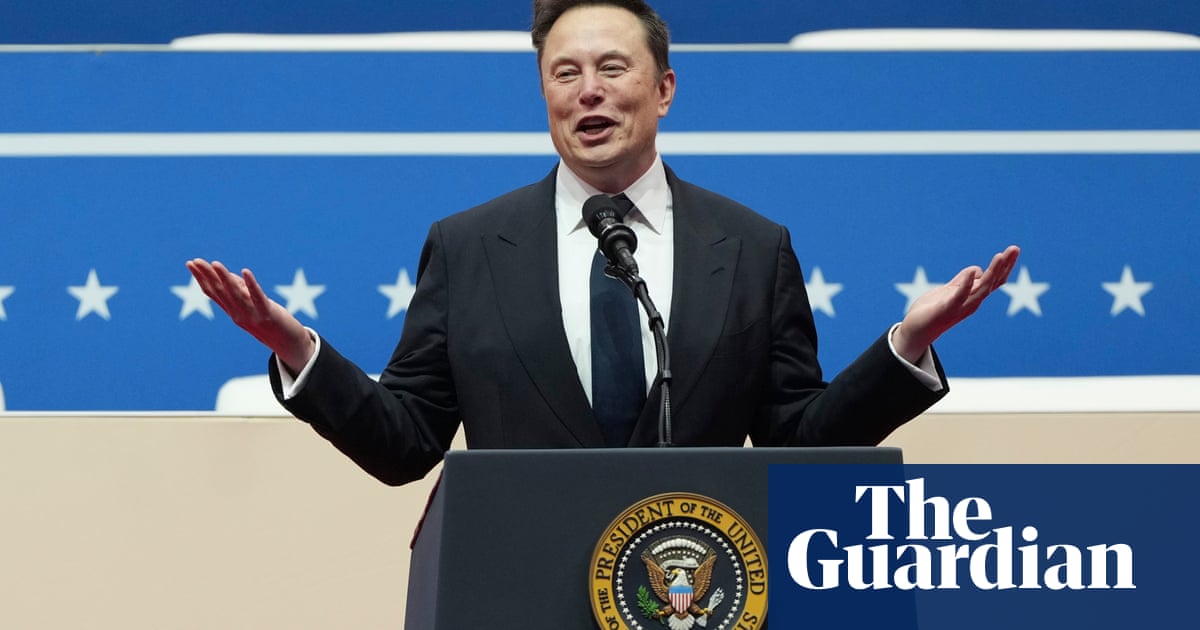US President Donald Trump’s decision to host Benjamin Netanyahu as the first foreign leader to visit the White House is being viewed as an endorsement of Israel’s devastating war in Gaza and underscores the level of dehumanisation faced by Palestinians, observers and human rights activists have said.
Netanyahu, wanted for crimes against humanity by the International Criminal Court (ICC) is visiting DC this week as Israel’s military operation continues in and around the occupied West Bank. The assault has killed over 50 Palestinians and displaced more than 26,000 in the Jenin refugee camp and Tulkarm since it began on 21 January.
Doctors without Borders (MSF) said in a statement on Monday the Israeli military had destroyed 23 buildings in Jenin on Sunday alone.
Jonathan Kuttab, the executive director of Friends of Sabeel North America (FOSNA), told Middle East Eye that given the events of the past 16 months in Gaza, the invite to Netanyahu was not just disrespectful to Palestinians, but was evidence once more that Trump has no interest in the rule of law.
New MEE newsletter: Jerusalem Dispatch
Sign up to get the latest insights and analysis on
Israel-Palestine, alongside Turkey Unpacked and other MEE newsletters
“His view of the world is one of power rather than law; of superpower [and] bullying rather than cooperation to solve problems.
“Trump totally disregards international law, disrespects the values of decency, democracy, civilization. He’s just a strong bully who wants to throw his weight around, and he has no problem associated with criminals to carry out his own interests,” Kuttab said.
The Palestinian Ministry of Health says that more than 47,000 have been killed in Israel’s operations in Gaza since October 2023 in what several human rights experts have described as genocide and have called for an arms embargo on Israel.
Ahead of his travel to Washington, Netanyahu said that he would be talking to Trump about the “victory over Hamas, achieving the release of all our hostages and dealing with the Iranian terror axis in all its components”.
Palestinian Americans say that Trump, who brokered a series of normalisation agreements with several Arab countries during his first term in office, may be looking to expand on the Abraham Accords by drawing Netanyahu into a “business deal” towards the ultimate goal of formalising ties between Israel and Saudi Arabia.
Last week, Trump described Gaza as a “demolition site” and called upon Egypt and Jordan to take in Palestinians, echoing calls by members of Netanyahu’s government for “ethnic cleansing” in Gaza.
The Palestinian leadership – both Hamas and the Palestinian Authority – condemned the proposal while Jordan and Egypt similarly rejected the idea.
However on Sunday, Amman’s announcement that King Abdullah II would be travelling to the White House for a meeting with Trump in the second week of February – just days after Netanyahu’s visit – has raised eyebrows.
“We need to see Trump as a businessman. Usually, billionaires hide behind politicians. Here the billionaires are the politicians,” Layan Fuleihan, an educational coordinator from The People’s Forum in New York City, told MEE.
“Trump has different plans and his recent plans show he is intent on expanding on the so-called ‘Deal of the Century’,” Fuleihan said.
Kuttab agrees that it is likely, too, that Netanyahu would try to secure more weapons, or Trump’s consent to conduct more operations in Gaza or the occupied West Bank, or to the ultimate goal of pressurising Jordan and Egypt into allowing for forced expulsions of Palestinians from Gaza to take place.
Marching into office
Trump has marched into his second term signing a raft of executive orders that has shaken the political establishment and rankled ordinary Americans with their breath and scope.
Trump lays out blueprint to deport pro-Palestinian foreign nationals
The executive orders are set to impact health care, education, and immigration, as well as the future of political activism in the US.
As part of the wide-reaching presidential actions, Trump also instated a new iteration of a travel ban that purportedly seeks to deport individuals “espousing hateful ideology” as well as decreed that foreign students may be deported for protesting Israel’s war in Gaza.
“Taken together, these two executive orders essentially ban all non-citizens, including green card holders, from criticising the US government, its institutions, or the state of Israel on penalty of deportation,” Eric Lee, an immigration attorney who represents several university students who have faced expulsion in cases related to Palestine activism, told MEE last week.
Taher Herzallah, from American Muslims for Palestine (AMP), told MEE that inviting Netanyahu to the White House was par for the course for Trump.
He said that given what Trump had managed to achieve during his first time – from moving the embassy to Jerusalem to the Golan Heights recognition, to the Abraham Accords – it was no surprise to see him standing so resolutely with Israel.
“If Trump wanted to turn a new page in the region, he would immediately halt funding for Israel as he has done to other countries and apply pressure to achieve tangible results on the ground that address both the humanitarian needs and rightful political aspirations of the Palestinian people.”
“This would fit very well with his ‘America First’ policy and save taxpayers billions of dollars going to foreign countries to serve the interests of Israel.”
Activists in New York City say that no matter what emerges from the meeting between the two leaders this week, the enlarging pro-Palestine movement in the US would be ready to respond. Opposition to Israel’s actions against Palestinians has grown over the past year and a half.
Though still inconclusive, by late 2024, most polls suggest that more Americans now oppose Israel’s war than they did in late 2023 or have concluded that Israel had gone ‘too far’ in Gaza.
“We have to build on the achievements of the past 15 months. And broaden the movement to involve all impacted by his policies,” Fuleihan added.
Article by:Source:
















